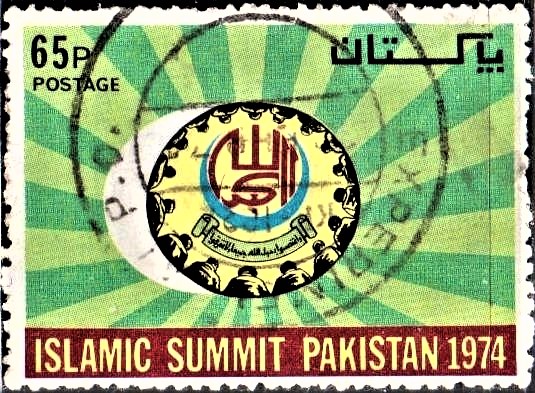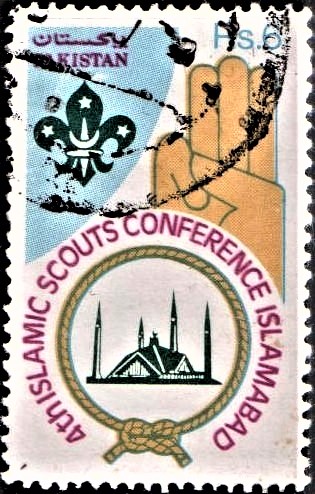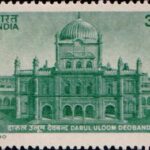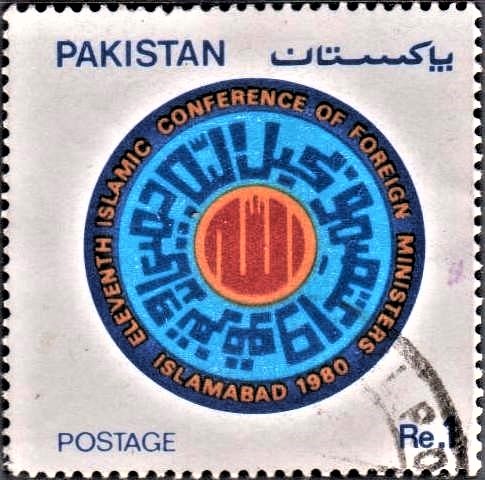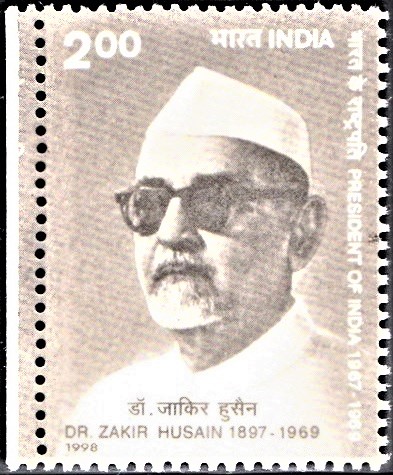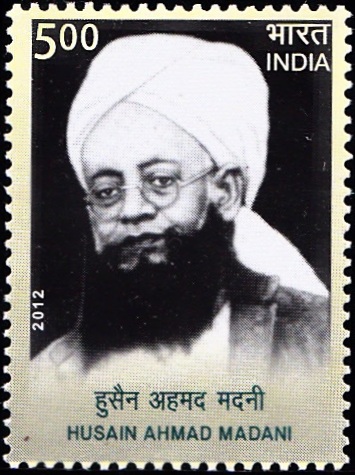
Husain Ahmad Madani
A commemorative postage stamp on Maulana Hussein Ahmed Madani, an Indian Islamic scholar and politician from Darul Uloom Deoband, Uttar Pradesh :
 Issued by India
Issued by India
Issued on Aug 29, 2012
Issued for : Department of Posts is happy to commemorate the contribution of the great scholar, freedom fighter and proponent of Hindu-Muslim unity, Husain Ahmad Madani, by issuing a Commemorative Postage Stamp.
Credits :
Stamp / FDC & Cancellation : Nenu Gupta
Type : Stamp, Mint condition
Colour : Multi colour
Denomination : 500 Paise
Stamps Printed : 0.4 Million (0.1 million for the proponent)
Printing Process : Wet Offset
Printer : India Security Press, Nashik
Name : Syed Husain Ahmad Madani
Born on Oct 6, 1879 at Bangarmau, Unnao district, Uttar Pradesh, India
Died on 1957
About :
- Maulana Husain Ahmad Madani (1879-1957) who later earned the title of Shaikh-ul-Islam was born at Bangarmau (Uttar Pradesh). His father, Syed Habibullah, was a headmaster and Husain Ahmad was the third of his five sons.
- Husain Ahmad’s father’s desire to secure the best available education based on classic Islamic principles ensured that Husain Ahmad was sent to join the seminary at Deoband in 1891 at the young age of twelve. The curriculum at Deoband included not only Arabic grammar, Arabic literature but also logic, philosophy, law, jurisprudence, prophetic traditions, Qur’an and theology.
- In the year 1898, Habibullah decided to migrate to Medina with his family. Thereafter, except for intermittent travels to India, Husain Ahmad spent the next few years of his life in Medina. In due course, Husain Ahmad was accorded the title of “Maulana”, a recognition that he was a scholar of Islam. It is said that he was known as “Maulana Hindi” in Medina and reciprocally in India he was addressed as “Madani”, to indicate his ties to Medina. Beginning in the 1920s, he was also called the “Shaikh-ul-Islam”.
- While in Medina, Husain Ahmad came in contact with Sheikhul Hind, Mehmoodul Hasan and became his close confidant. The two were arrested in Mecca in December 1916 and interned in Malta for alleged sedition and conspiracy against the British in India. Madani’s release from Malta and arrival in Bombay in 1920 with his mentor marked a new era in the history of freedom struggle. In the Khilafat Conference held at Allahabad in June, 1920, Madani supported the idea of non-cooperation with the British. He understood the need for collective efforts of Muslims as well as Hindus for challenging the British rule. His secular credentials were recognised by one and all. Husain Ahmad Madani also took an active part in the Civil Disobedience Movement in 1932 and in Quit India Movement in 1942 and was imprisoned on many occasions.
- Husain Ahmad Madani was elected President of Jamiat Ulama-i-Hind at its Jaunpur session in 1940, a post he held until his death in 1957. Later, he was also appointed as Dean of Studies and Head of the Department of Hadith at Darul Uloom, Deoband.
- Text : Based on the material provided by the proponent.



